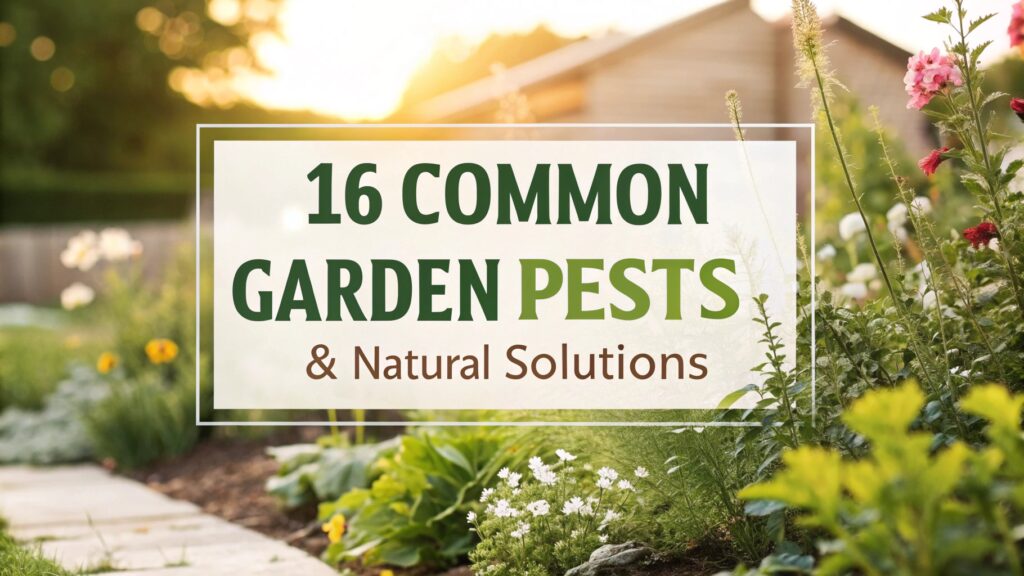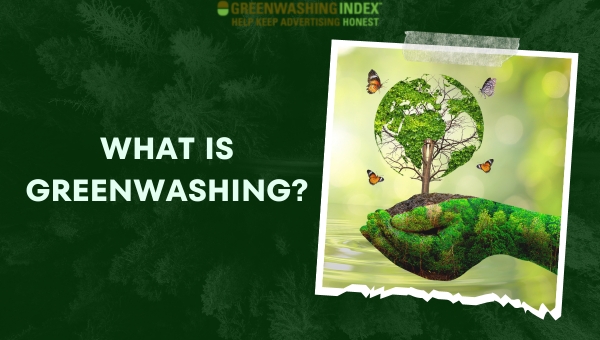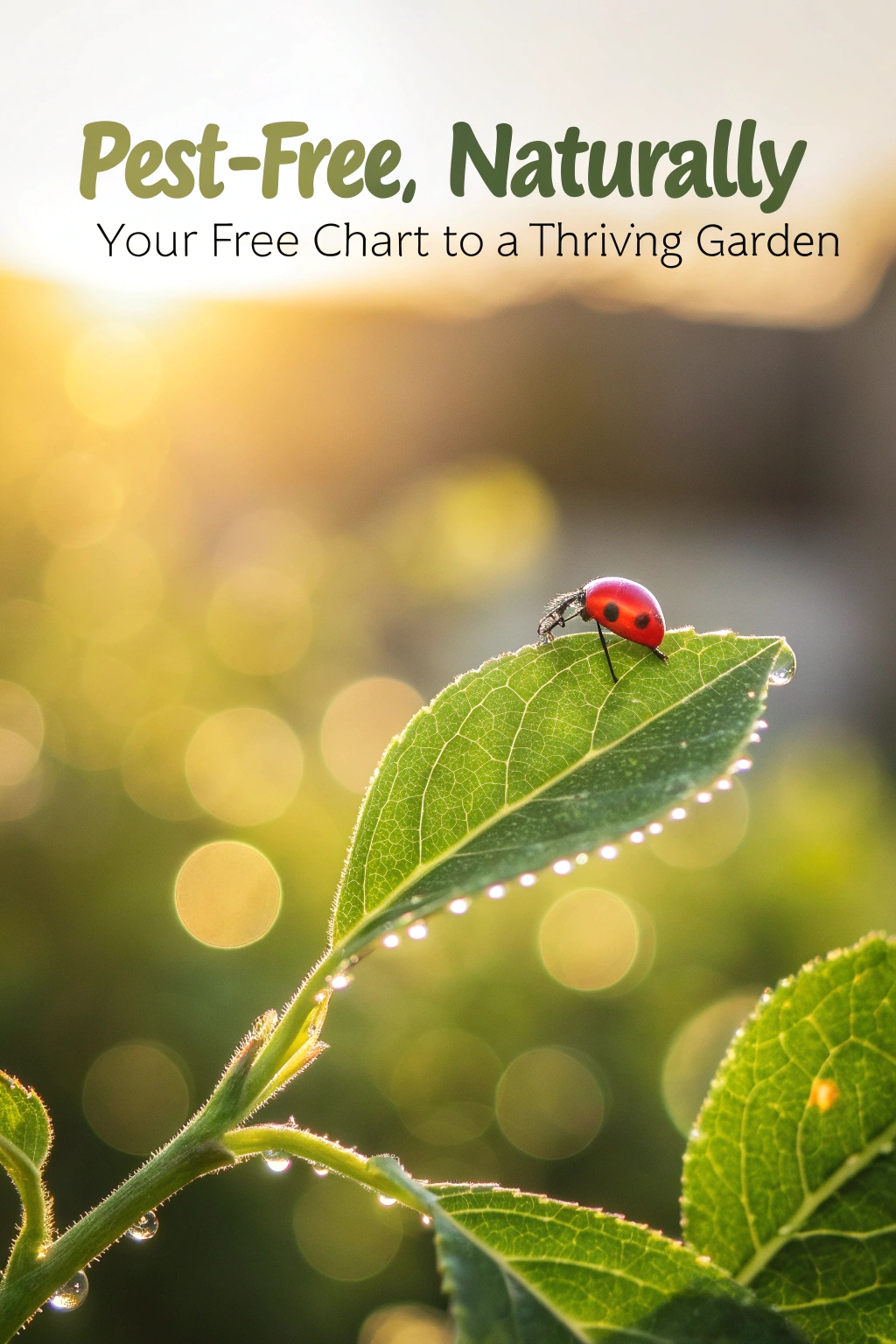Gardening can be a fulfilling and rewarding hobby, but it comes with its own set of challenges, especially when it comes to pesky garden pests. In this article, we will explore 16 of the most common garden pests that can wreak havoc on your plants and provide you with effective natural solutions to combat them.
Whether you’re an organic gardening enthusiast or simply looking for eco-friendly ways to protect your garden, these tips will have you growing healthy and vibrant plants in no time.
1. Aphids
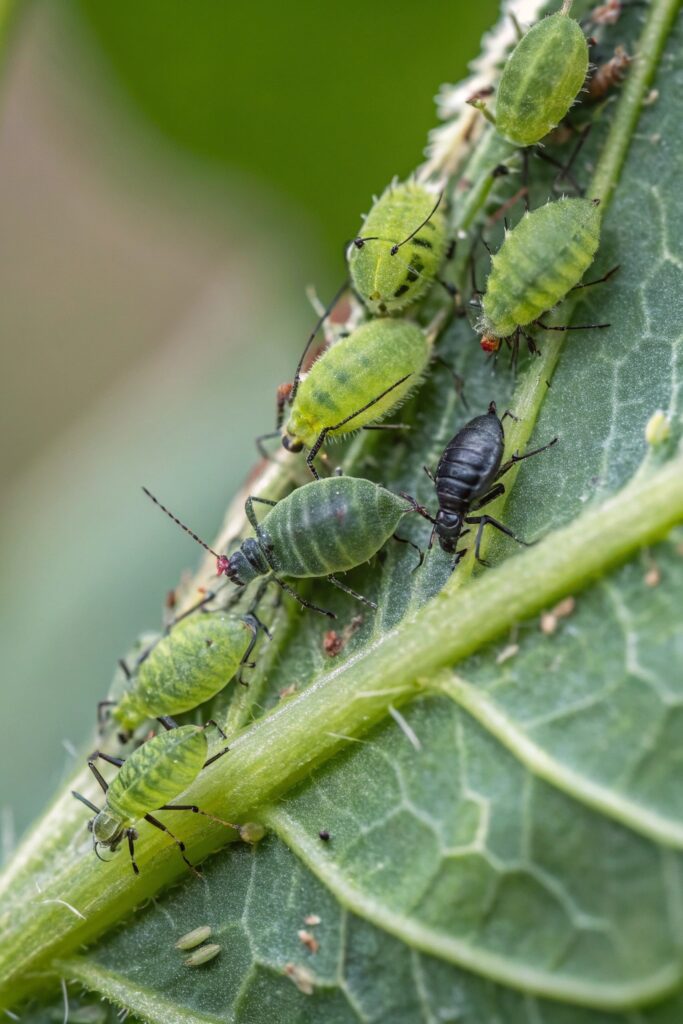
Aphids are tiny, soft-bodied insects that suck the sap from plants, causing leaves to yellow and curl. These pests reproduce rapidly, making them a significant threat to your garden.
To combat aphids naturally, introduce beneficial insects like ladybugs or lacewings, which feed on aphids. You can also create a homemade soap spray by mixing mild dish soap with water and spraying it directly on the affected plants. This method helps to suffocate the aphids without harming your plants or the environment.
2. Spider Mites
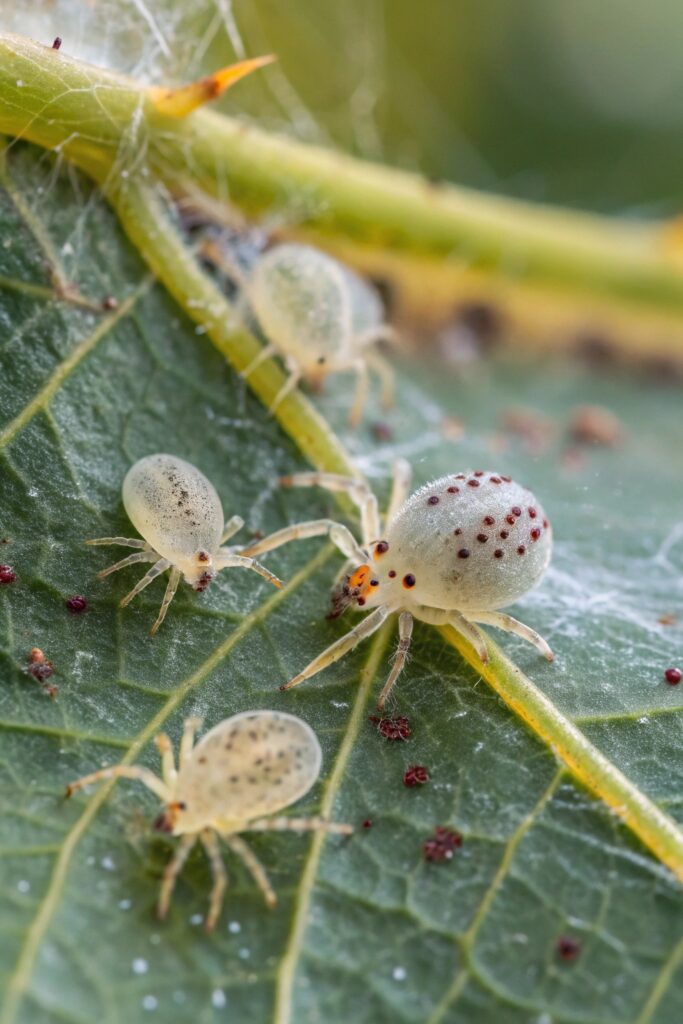
Spider mites are microscopic pests that thrive in hot, dry conditions and can quickly damage your plants by sucking out their fluids. Infestations can lead to stippling on leaves and webbing between branches.
To manage spider mites organically, increase humidity around your plants by misting them regularly or using a humidifier. You can also spray plants with a strong jet of water to dislodge the mites. For a more targeted approach, use neem oil or insecticidal soap to effectively eliminate these pests.
3. Slugs and Snails
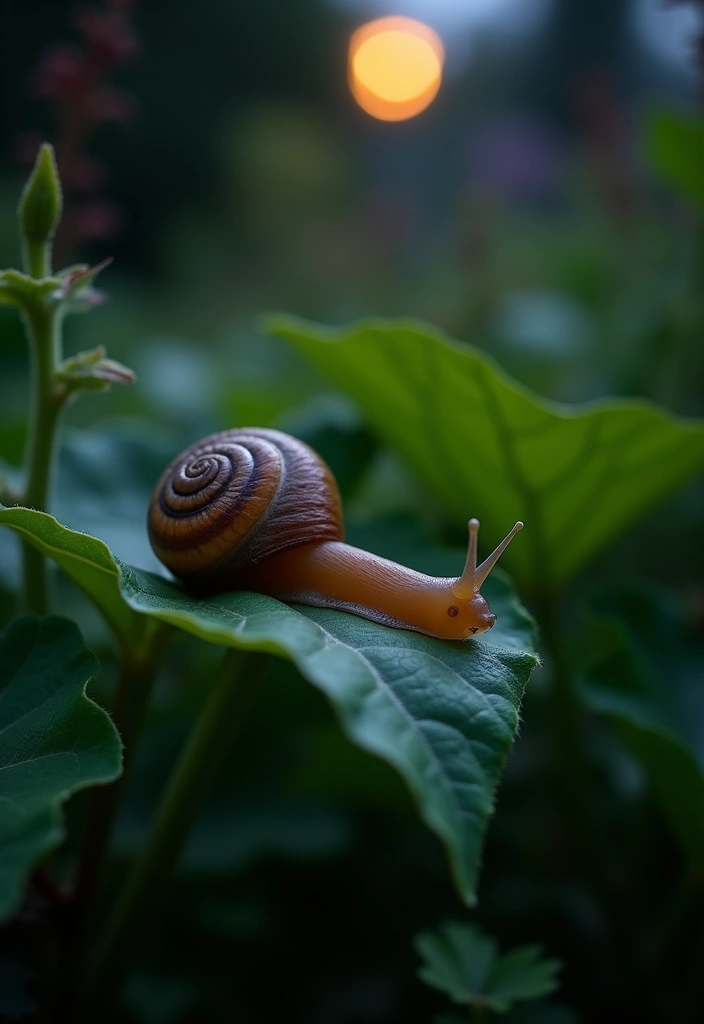
Slugs and snails are notorious garden pests that feast on tender leaves and young plants, leaving behind unsightly holes. They thrive in damp conditions and are most active at night.
To deter slugs and snails, create barriers using crushed eggshells or diatomaceous earth around your plants. Another effective method is to set up beer traps: simply bury a container filled with beer in the garden, and the pests will be attracted to it and drown. This method is not only effective but also eco-friendly.
4. Whiteflies

Whiteflies are tiny, flying insects that resemble tiny moths and can cause serious damage by feeding on plant sap. They also secrete honeydew, leading to sooty mold growth.
To control whiteflies naturally, introduce parasitic wasps, which feed on the larvae. Additionally, using a yellow sticky trap placed near affected plants can help catch adult flies. A homemade solution of water mixed with garlic or hot pepper spray can also act as a repellent.
5. Caterpillars
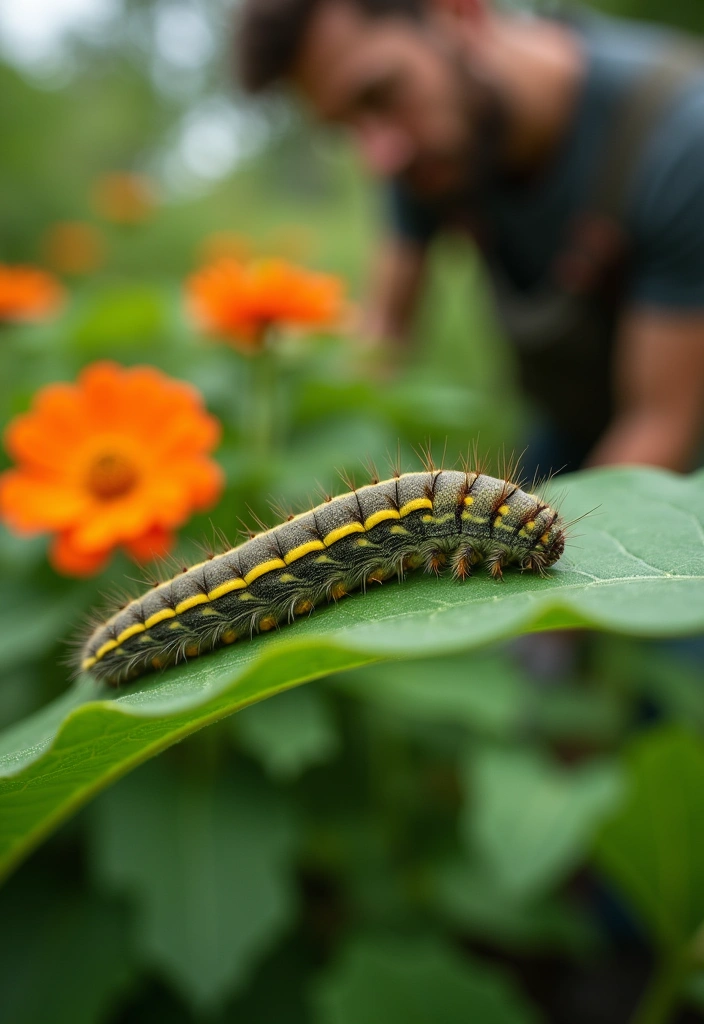
Caterpillars can devastate your garden by munching through leaves, and they can be particularly challenging to spot. They often blend in with the foliage, making them easy to overlook.
To address caterpillar issues, you can handpick them from your plants or use beneficial insects like parasitic wasps. A natural solution includes using a solution of water and BT (Bacillus thuringiensis), which targets caterpillars specifically without harming other insects. Regularly inspecting plants can prevent infestations before they become severe.
6. Thrips
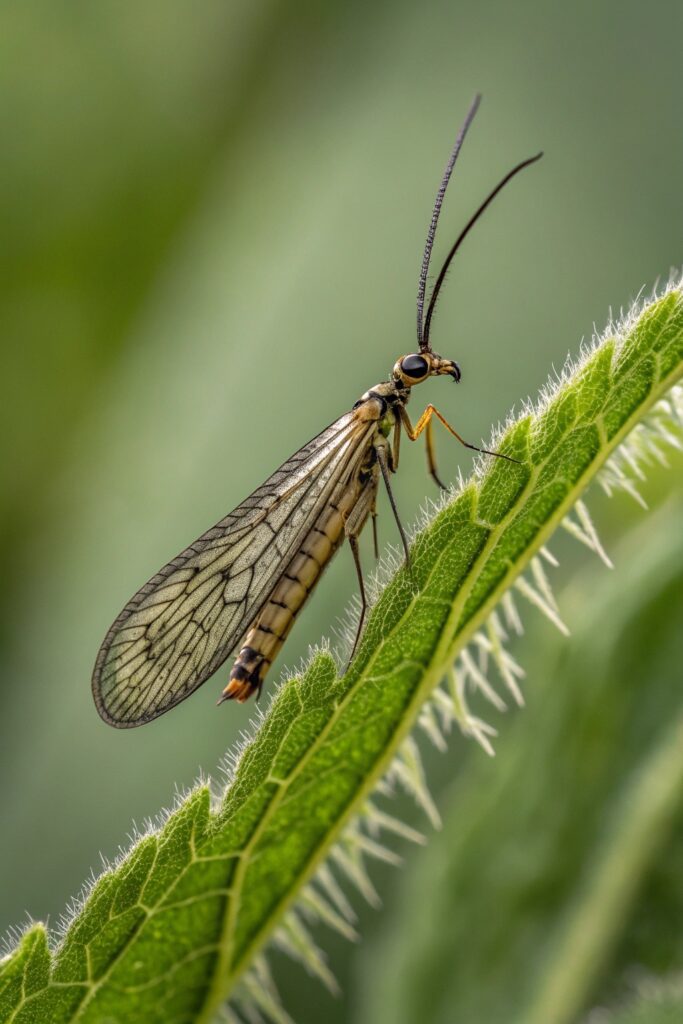
Thrips are tiny, slender pests that can cause a great deal of damage to your plants by puncturing leaves and sucking out the juices. They can also transmit diseases between plants.
To manage thrips, introduce predatory insects like minute pirate bugs, which feed on them. A strong spray of water can help dislodge them from your plants, while insecticidal soap is effective for treating infestations. Regularly cleaning your garden and removing debris can also help prevent future outbreaks.
7. Fungal Gnats
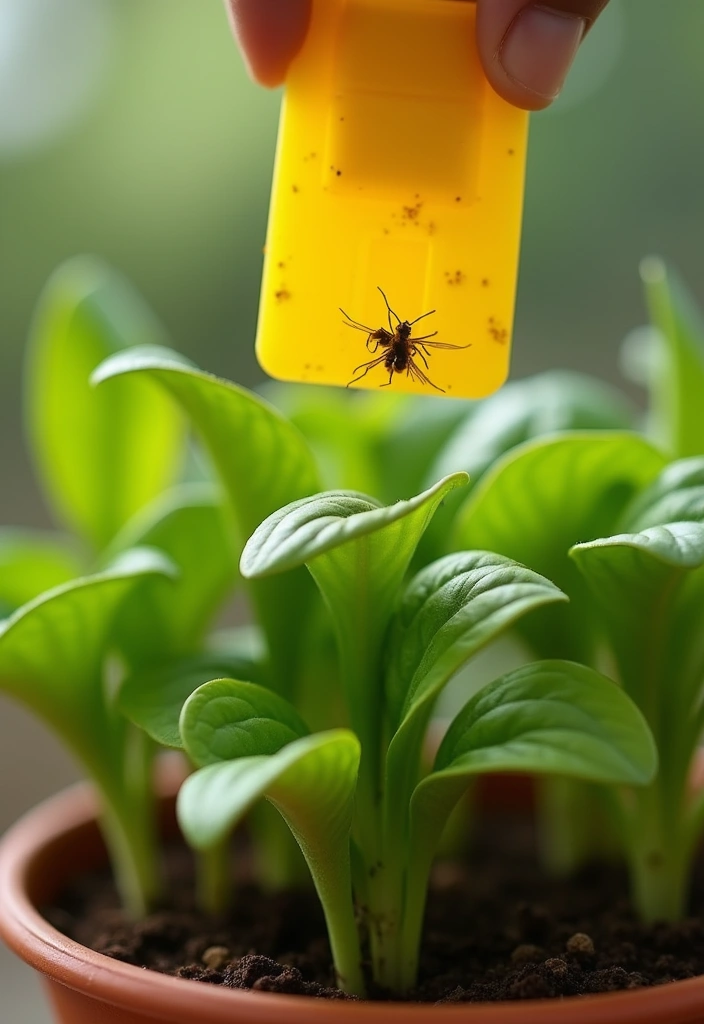
Fungal gnats are small, dark flies that thrive in damp soil, especially in potted plants. Their larvae feed on plant roots, leading to weak or dying plants.
To combat fungal gnats, allow the top layer of soil to dry out between waterings, as they prefer moist conditions. You can also use yellow sticky traps to catch adult gnats. Introducing beneficial nematodes into the soil can effectively target and eliminate gnat larvae without harming your plants.
8. Mealybugs
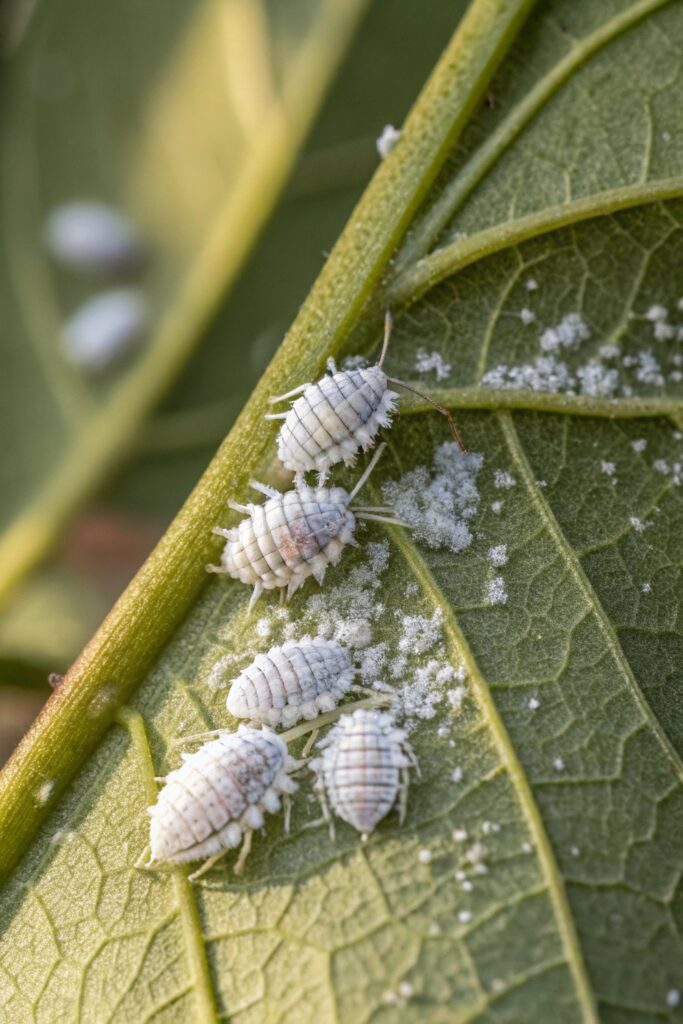
Mealybugs are small, white, cottony pests that cluster on the stems and leaves of plants. They can weaken plants by sucking out sap and excreting honeydew, which attracts ants and other pests.
To manage mealybugs naturally, dab them with a cotton swab soaked in alcohol to kill them on contact. Introducing predatory wasps can also help control their population. Regularly inspecting your plants and maintaining good air circulation can help prevent infestations.
9. Ants
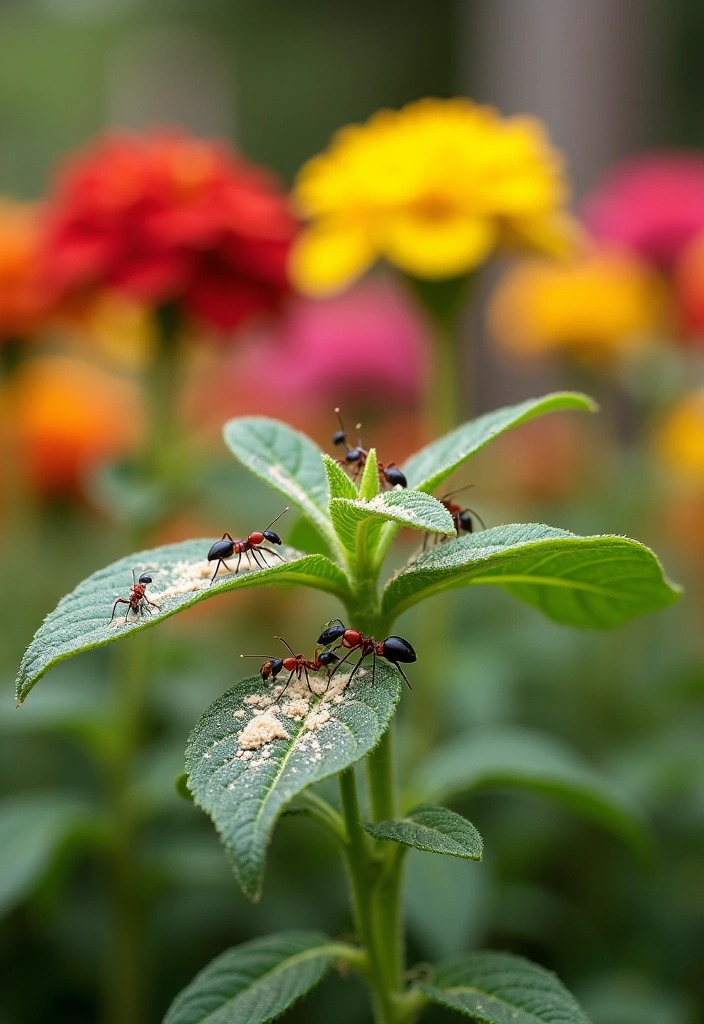
While ants are not direct pests to plants, their presence often indicates other pest problems, such as aphids or scale insects, which they farm for honeydew.
To deter ants, sprinkle diatomaceous earth around plant bases and eliminate any aphid or mealybug infestations. A homemade mixture of vinegar and water can also be sprayed around the perimeter of your garden to keep ants at bay. Encouraging natural predators can help maintain a balanced ecosystem.
10. Japanese Beetles
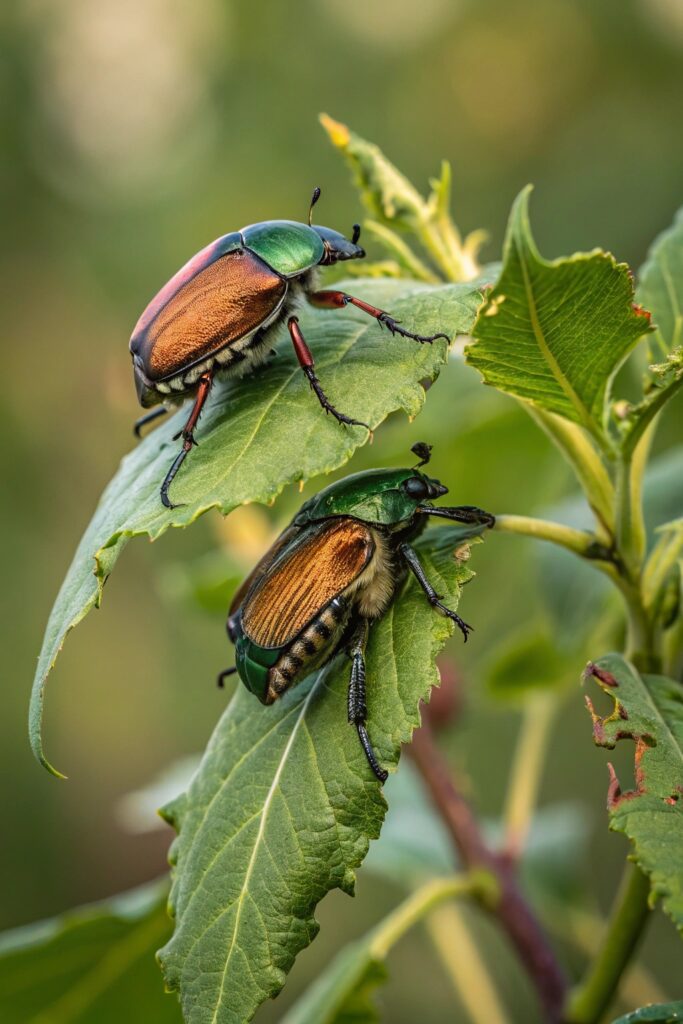
Japanese beetles are shiny, metallic green pests that can skeletonize leaves and damage flowers. They are particularly attracted to roses and other flowering plants.
To control Japanese beetles naturally, handpick them in the early morning when they are less active. You can also set up traps baited with lures that attract them away from your plants. Introducing nematodes into your soil can help eliminate larvae before they mature into adults.
11. Leafhoppers
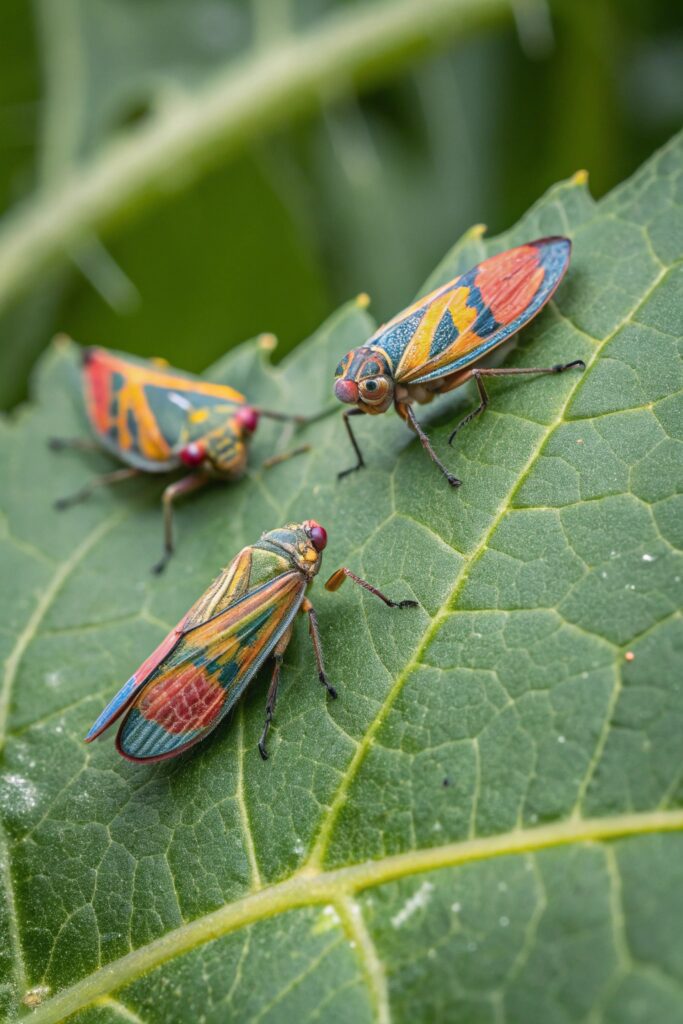
Leafhoppers are small, jumping insects that feed on plant sap, leading to stunted growth and yellowing leaves. They can also transmit viral diseases among plants.
To manage leafhoppers organically, attract beneficial insects like lacewings and parasitic wasps. You can also use a strong spray of water to dislodge them from plants. Planting flowers that attract these beneficial insects can create a natural balance in your garden ecosystem.
12. Cutworms
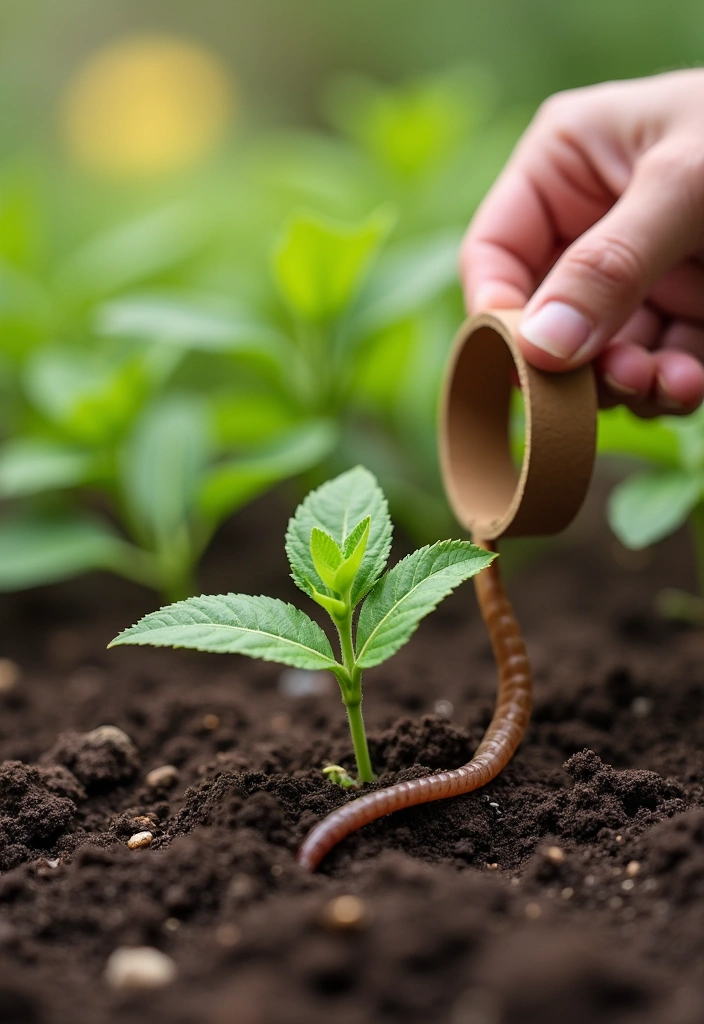
Cutworms are caterpillars that can sever young plants at the soil level, causing them to wilt and die. They are often found hiding in the soil during the day.
To deter cutworms, use collars made of cardboard or tin foil around the bases of young plants to prevent them from reaching the stems. You can also introduce beneficial nematodes to target cutworm larvae. Regularly inspecting your garden and removing debris can help reduce their habitat.
13. Scale Insects
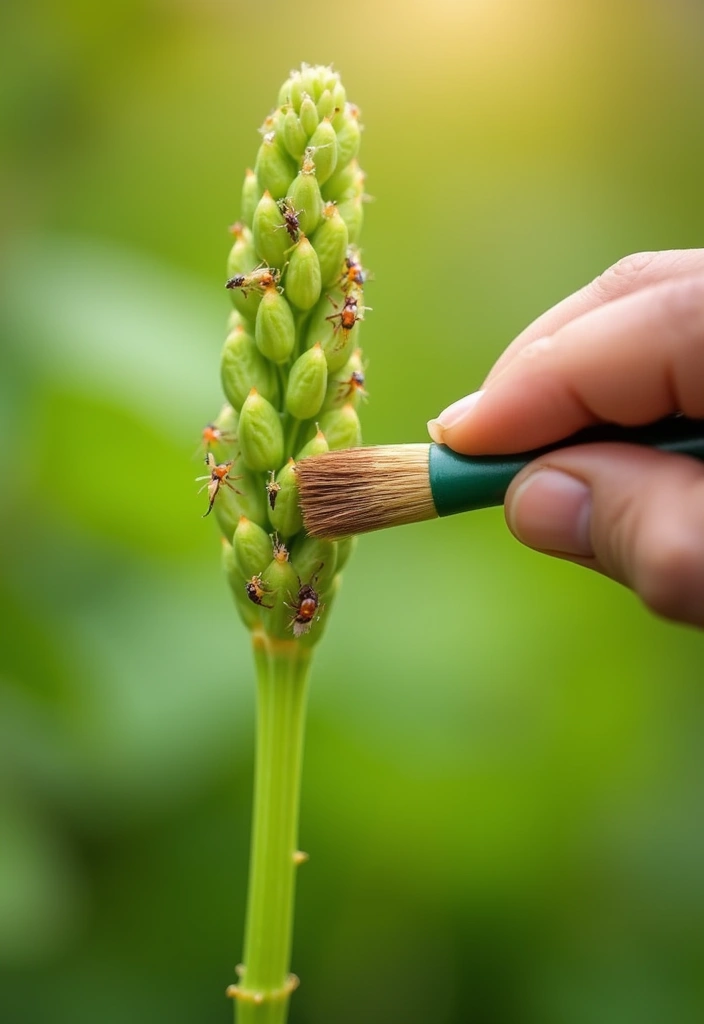
Scale insects are small, immobile pests that attach themselves to stems and leaves, sucking sap and weakening the plant. They can be difficult to spot due to their protective shells.
To control scale insects naturally, you can use a soft brush to scrub them off or apply neem oil to suffocate them. Encouraging natural predators like ladybugs can also help keep their populations in check. Regular inspection and maintenance of plant health can prevent infestations.
14. Nematodes
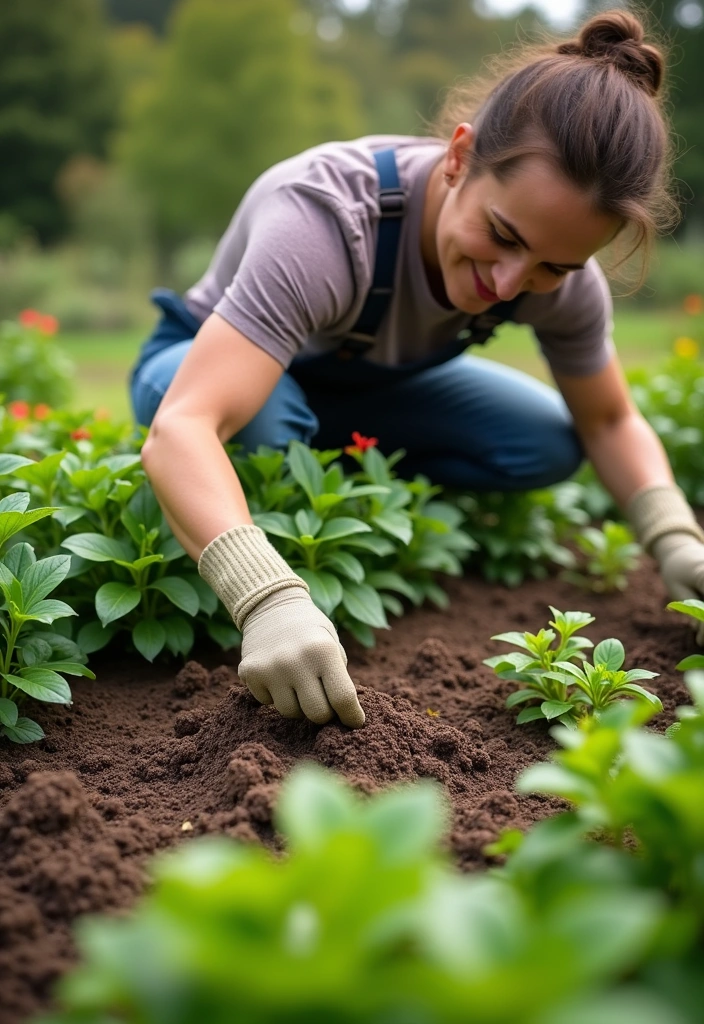
Nematodes are microscopic worms that can target various pests in the soil, including grubs and larvae. They are an effective natural solution for pest control in gardens.
To use nematodes, simply mix them with water and apply them to the soil where pests are present. They will seek out and infect harmful pests while leaving beneficial insects unharmed. Regularly applying nematodes can help maintain a healthy soil ecosystem and reduce pest populations.
15. Powdery Mildew

While not a pest in the traditional sense, powdery mildew is a fungal disease that affects many garden plants, causing white, powdery spots on leaves. It thrives in humid conditions and poor air circulation.
To manage powdery mildew naturally, ensure good air circulation around plants, as well as proper spacing. A spray of water mixed with baking soda or neem oil can help control outbreaks. Regularly removing affected leaves will prevent further spread and promote plant health.
16. Natural Remedies for Pest Control
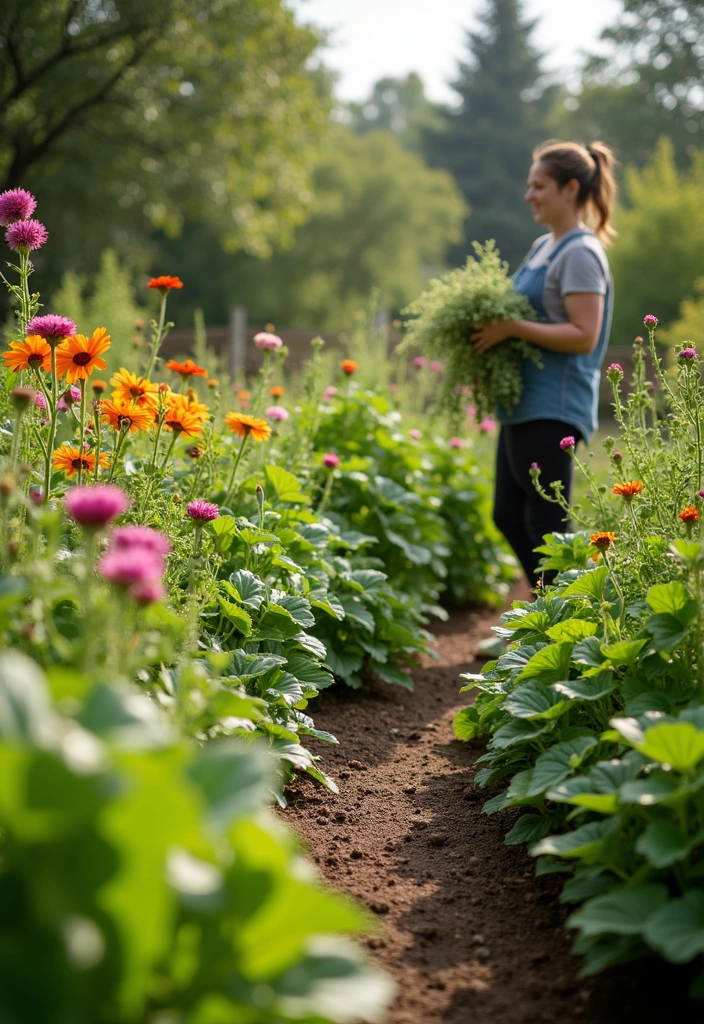
In addition to specific solutions for individual pests, several natural remedies can be used to create a healthier garden environment. Homemade sprays using garlic, hot pepper, or essential oils can deter a variety of pests.
Encouraging biodiversity by planting a mix of flowers and herbs can attract beneficial insects that prey on harmful pests. Regular garden maintenance, including removing debris, can reduce pest habitats. These holistic approaches help create a balanced ecosystem that naturally controls pest populations.
Conclusion
Gardening doesn’t have to be a battle against pests. By incorporating natural solutions and maintaining a diverse ecosystem, you can effectively manage pests while keeping your garden vibrant and healthy. Embrace the beauty of organic gardening and explore the wealth of natural remedies available. Start implementing these strategies today and enjoy the fruits of your labor with a pest-free garden.

